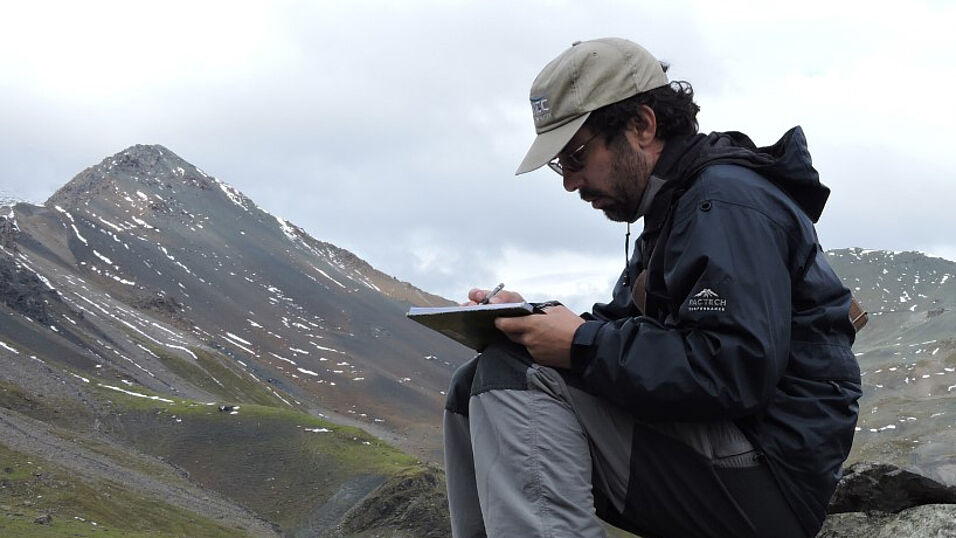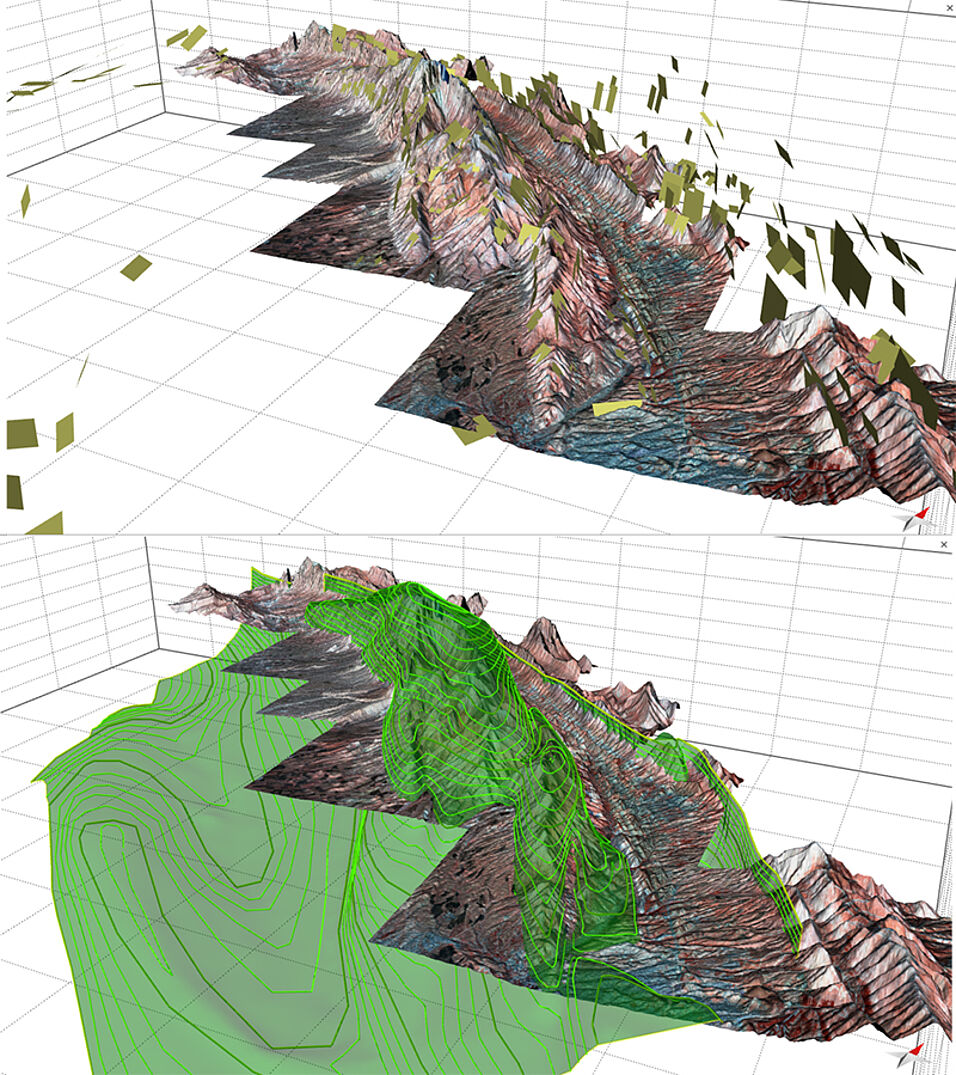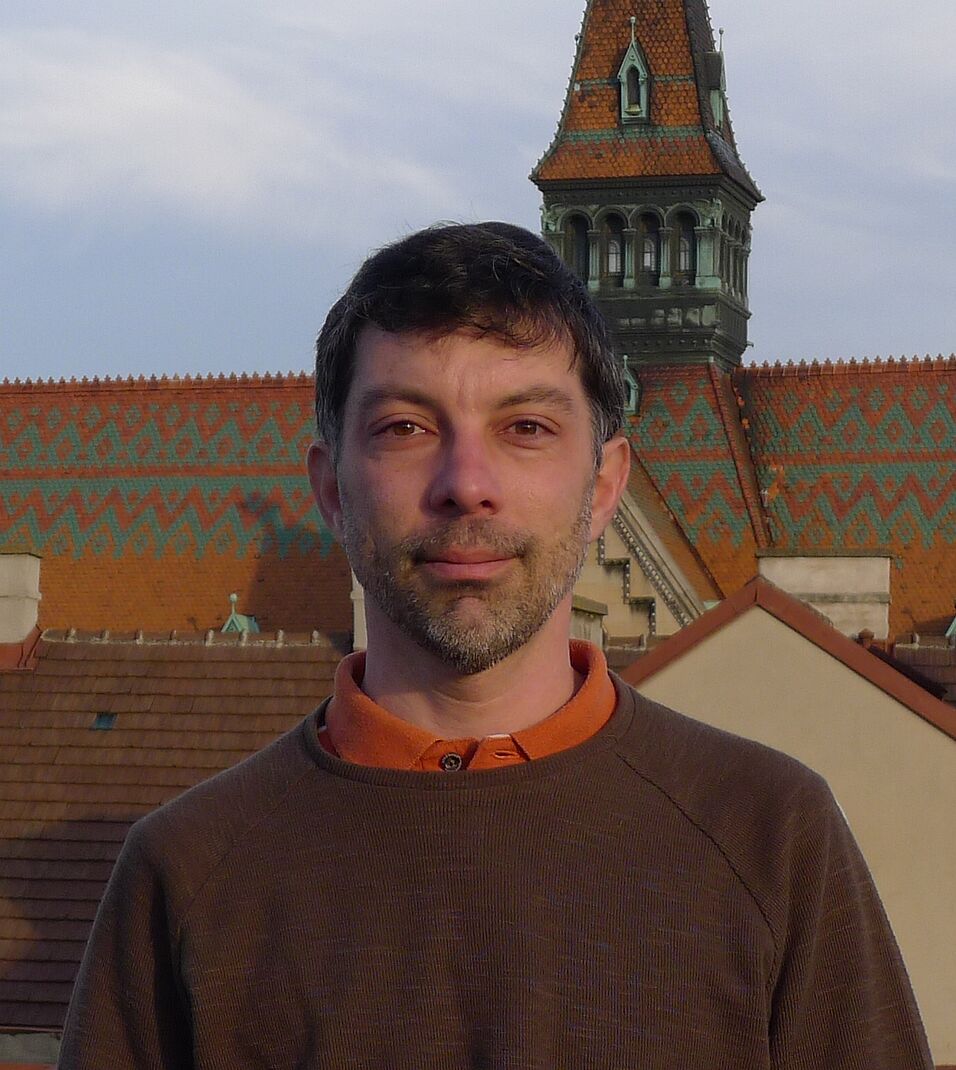"I work like a doctor with x-rays or ultrasounds: The difference is the patient does not speak, while I try to find out what's beneath the surface – or what drillers are supposed to find", Oscar Fernandez summarizes his working life between wellbores, fracture modeling, faults and sedimentary basins. After his PhD at the University of Barcelona, the scientist with Latin American roots soon entered the world of the oil industry. "Most of my fellow students wanted to stay in academia, but at that time I didn't see myself there. I first wanted to see the world", he explains. "Nevertheless, my jobs always had a strong component of research, and I have continued to be closely involved with research at universities and research centers throughout my career."
„Adressing problems at all scales“
What followed, were 15 years in exploration and production companies and in companies, that develop geological software with projects all over the globe – from the Mediterranean and Norwegian Sea to Angola, India, Trinidad or the Gulf of Venezuela. "I have worked on a wide range of subjects adressing problems at all scales", says Fernandez.
At the regional scale, his most recent work has concentrated on the link between plate tectonics and geodynamics to better understand the evolution and hydrocarbon prospectivity of sedimentary basins. "At a more local scale, I have worked extensively on naturally fractured reservoirs and numerical modelling of fractures for the purpose of improving simulations of hydrocarbon production." In these and other settings, his research has been underpinned by a strong need to integrate data and bridge across disciplines, namely geophysics, geology and engineering.
Integration and practicality
Integration and practicality are also what Oscar Fernandez names as his two biggest skills. "Dealing with excellent data, testing and integrating with other disciplines, that is what thrills me in the oil industry. But it also means delivering practical solutions on a deadline", he says. That of course can cause pressure and carries a strong weight on the scientist, because geological features, like active faults, have an impact on drilling wells safely, and can cause a risk up at surface, he adds: "It's a risk you learn to fear in a healthy way. You know you want to do things so that accidents, like with the Deepwater Horizon, don't happen."
"Uncertainty is part of the game"
Regarding the question of whether one will find oil or not when drilling an exploratory well, everything depends on the risk assessment, explains the father of three kids: "Uncertainty is part of the game. Managers want to know what probability they have of finding oil there. You give them a number, they might invest 200 million Euros in a wellbore, they find no oil and that's okay, as long as you've done your job right as a scientist. Quoting a fellow geologist: the drill bit is still smarter than the geologist." But on the other side, nothing feels so good as having been right with your hypothesis, he says: "This is the beauty, when you work in the industry: You get to test your science and with it you can help to do things safely."
Did he always want to become a geologist? "I knew it, since I was very young. When I was a kid, my father gave me a very geeky book about how the Russians in the 80s were drilling the deepest borehole into the earthcrust. It was a passionate book about how you discover what lies under the Earth's surface. That sort of triggered it", Fernandez says.
Researcher, trainer, supervisor
Throughout the last years, Fernandez not only worked as a lead researcher, but also as a supervisor for PhD-Students, as a trainer for students and professionals and in the geological software business, interfacing between customers and the software developers. He also worked as an advisor in Structural Geology for huge companies like BP and lately for Repsol. During his time in these companies he also led and conducted research in frontier areas of the discipline, like hyperspectral remote sensing applied to geological mapping, geomechanical modelling ahead of drilling in structurally complex areas and characterization of the crustal structure of passive margins. His typical working day as an advisor at company level meant mostly delivering science to colleagues inside and bringing new perspectives into running projects.
„See the links!“
How important it is to have different perspectives, is also one of the things he wants to share with his students now as an Ida-Pfeiffer Professor at the Faculty of Earth Sciences, Geography and Astronomy while teaching structural geology, structural mapping and petroleum geology: "Students tend to focus on the problem they have. You need to step back and look at your issue from a different perspective and reach out to other disciplines. See the links! And never ever forget basic science and basic research." (isa)
https://www.linkedin.com/in/oscarfernandezbellon/
https://www.researchgate.net/profile/O_Fernandez



